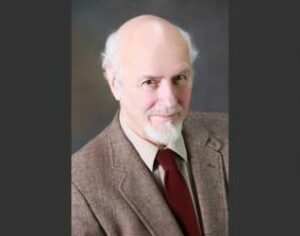A Different Kind of Socialism

President Trump, in his State of the Union, laid down the gauntlet, intoning: “American will never be a Socialist country.”
His remarks, which presage the 2020 elections, were triggered by a slew of proposals from self-identified socialists, U.S. Rep. Alexandria Ocasio-Cortez and U.S. Sen. Bernie Sanders. In themselves the call for higher taxes on the rich, for moving towards renewal energy, for jobs programs and public investment are familiar parts of what we used to refer to as liberalism.
What has jolted America are the specific rates and time tables. Not just raising taxes on the rich, but a 70 percent marginal tax bracket. Not just shifting towards renewables but ending use of fossil fuels within a decade. Not just re-establishing a meaningful estate tax, but a 77 percent rate for the mega-estates.
With this has come the confusion that socialism consists of progressive policies with more extreme specifics. But socialism, at least the new socialism of The Bread and Roses Party of Maryland, the first new socialist party in America in four decades, does not consist of our out-bidding reasonable progressive policy positions with more extreme specifics.
Our socialism is radical in a totally different sense. Our radicalism consists of the effort to go deeper into the questions of purpose, both on the individual and the national level. We ask, “What is an economy for?” “What is the relationship between our own efforts in the job market and achieving a meaningful life?” and most fundamentally, “What should be The American Dream?”
In my unsuccessful race last June, against U.S. Sen. Ben Cardin, in the Democratic Senate primary, we asked Democrats, “What is your American Dream?” In answer: 8 percent chose “being able to possess anything I want.” Another 14 percent chose “being in the top 10 percent or higher,” (a dream that by definition denies fulfillment to the other 90 percent). And an overwhelming 74 percent said that their American dream was “income to live a relatively modest, but decent and secure life, with lots of leisure to do the things in life that are most meaningful to you.”
We call for a new approach to social and economic policy, one that makes the United States “user friendly” towards those who share this Alternative American Dream.
How to do that is open to debate. Our socialism seeks to embody some epistemic modesty about the real-world effects of specific policies. A key objective is to reduce the costs of meeting core needs on the household level. This points toward free public college, and government supported daycare. It points towards a progressive payroll tax, and to an expansion of the earned income tax credit. And through a variety of means, it means a transition to a distinctly socialist social contract: “From each according to their potential, to each according to their needs.”

Jerome M. Segal
Socialism is most centrally concerned with the issue of work. Another term for Capitalism, one more acceptable within the Beltway, is to talk about our “job system” – by which we mean a world (less than 200 years old) in which there is a sharp division between two classes, between “the job creators” and the “job seekers.” It is a world in which almost the only way to make a living is to hook up with the job creators, to train ourselves and our children, to best fulfill the anticipated needs of the job creators.
Marx spoke of this job-system dependence as “alienated labor” a rich and multi-layered concept, but one that centered on the verb, “to alienate” meaning “to sell” – that is, a world in which each of us puts their labor up for sale in the market.
Decreasing our dependence on the job system and transforming that job system to make it work for the “Alternative American Dream” is the core of our socialism. The specifics of policy do not lie in nationalization, or ending free markets or private ownership. They may lie in vastly expanding self-employment. They may lie in education that equips every young person to be their own non-profit. And they may lie in developing a new class of corporate entities, V-corporations, Value-Corporations, that will exist somewhere between non-profits and current corporations which aver no greater responsibility than the maximization of returns to shareholders and executives.
Our socialism seeks clarity with respect to vision, depth of reflection with respect to the American Dream, but also aspires to experimentalism and empiricism and epistemic modesty with respect to policy.
To Mr. Trump, we offer a thank you. Not just for putting “What is Socialism?” on the national map, but for convincing all of us, that the competition for wealth, power and fame, the competition that you have won, is not our American Dream.
— Jerome M. Segal
The writer is the state chairman of the Bread and Roses Party of Maryland.




 Creative Commons Attribution
Creative Commons Attribution